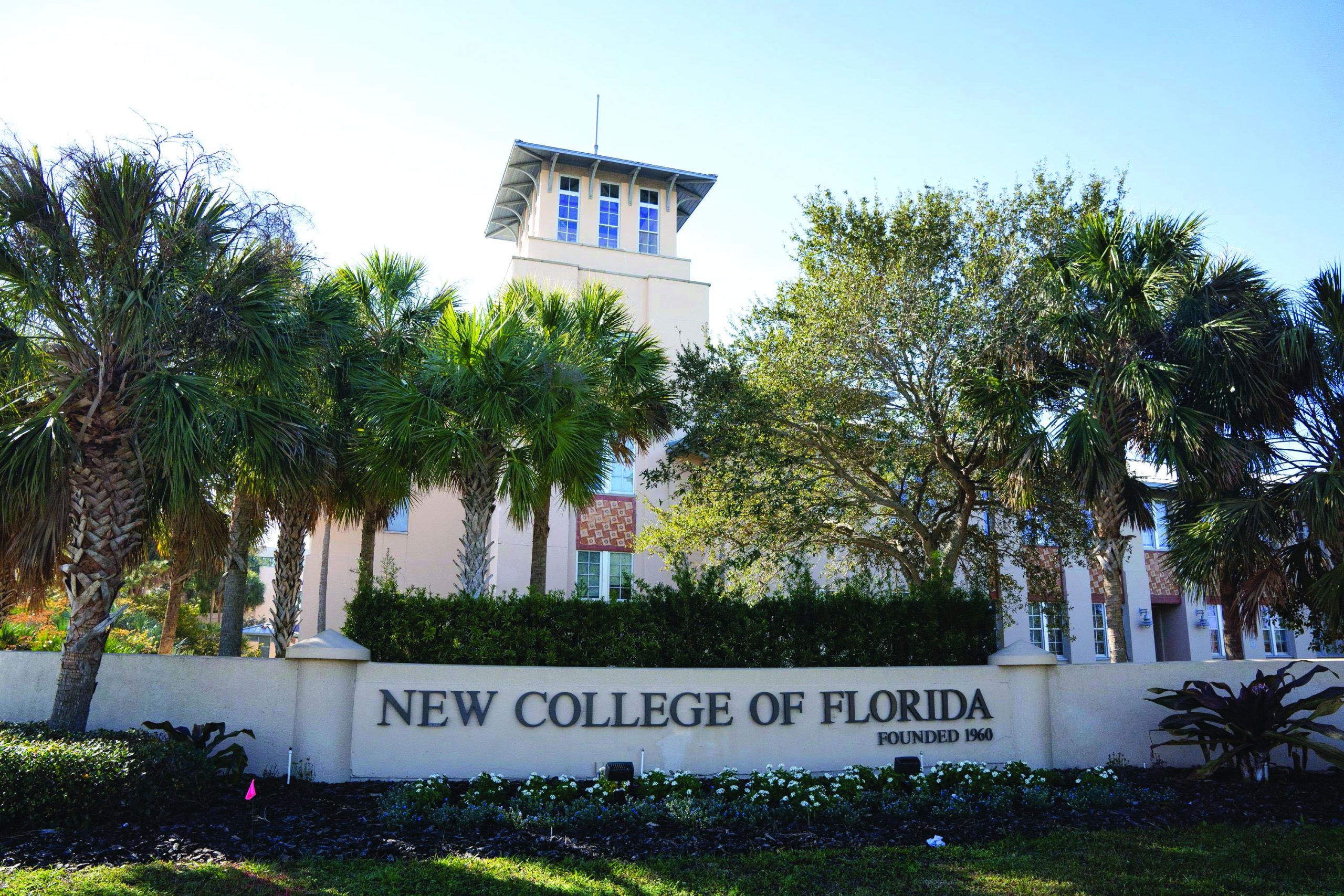
Brigham Young University-Idaho: 90-96 credits
The Biden administration is signalling its willingness to accept degree programmes with fewer than 120 credits, potentially triggering a rush of consolidations that could further weaken struggling campuses.
The idea hit a milestone this summer with one of the six major US accrediting agencies, the Northwest Commission on Colleges and Universities, approving pilot three-year bachelor’s degree programmes at Brigham Young University-Idaho and Ensign College.
The US Department of Education, after allowing prolonged uncertainty over the matter, has now made clear that it sees no basis for interfering with the decision. “The Department of Education does not regulate the length of a baccalaureate degree programme or set and approve credit hours,” the department told Times Higher Education in response to a query over its position on the matter.
“Instead,” the department said, “our regulations rely heavily on accrediting agencies and institutions to determine that credit hours appropriately represent a student’s academic work, and expect that accrediting agencies ensure their standards and evaluation of credit hours are rigorous to allow the department to sufficiently evaluate institutional practices.”
The norm of four years and 120 credits has a historical basis unrelated to academic merit. Those two numbers have, however, been long-accepted elements of a system through which the federal government recognises accrediting agencies such as the Northwest Commission, which in turn give institutions the approvals needed for benefits that include student aid eligibility.
But with students confronting fast-rising levels of tuition fees and accumulated debt, US institutions have faced constant pressure to make the standard college experience cheaper and faster.
With the Northwest Commission approving the pilot in which three-year degree programmes at BYU-Idaho and Ensign will require only 90 to 96 credits, and with the Biden administration indicating consent, a rush of other accreditors and institutions is likely to follow them, says Robert Kelchen, professor of higher education at the University of Tennessee-Knoxville.
And while any net benefits to students may take time to assess, the nation’s many struggling colleges and universities — primarily the less-selective public and private campuses — are likely to suffer even more financially, says Prof. Kelchen.
“You may get some more students in the door” by reducing their total time of enrolment, he says. “But enough to offset the loss of credit hours? Probably not.”
The effect on students is less clear. The Northwest Commission agreed to try the idea, says its president Sonny Ramaswamy, with the understanding that BYU-Idaho and Ensign will show comparable student outcomes over time. As part of the pilot programme, which begins this coming April, the measures subject to comparison include course success rates and post-graduation outcomes such as career accomplishments and entry to graduate schools.
Naming rights controversy

New College of Florida: confusingly similar name charge
Ideological conflict in US higher education is moving into the realm of naming rights, with activists on both the left and the right fighting upstart entrants on the grounds of protecting students from confusion.
In the state of New Hampshire, a partisan producer of classroom instructional videos, Prager University has been accused by a gubernatorial candidate of illegally using the “university” term in its name to hide its ideological agenda.
In Florida, meanwhile, state officials threatened legal action against an effort to privately revive the New College of Florida, a public institution whose leaders were pushed out by a governing board of partisan appointees.
New College had long been known as a politically progressive campus until Ron DeSantis, the state’s Republican governor and a 2024 candidate for US president, engineered the ousting of its leadership. Now, some former New College faculty are organising to teach free and subsidised courses under the name Alt New College.
Attorneys representing New College wrote to Alt New College demanding that it stop using the “confusingly similar” name. The attorneys cited New College’s top national rankings in the liberal arts — built up over decades ahead of the DeSantis takeover — in warning Alt New College: “Our client views its intellectual property rights as one of its most vital assets which must be vigorously protected.” Alt New College subsequently agreed to rename itself Alt Liberal Arts.
Prager University, meanwhile, is being pursued by Cinde Warmington, one of five members of New Hampshire’s executive council, an entity that shares some of the policymaking powers of the state’s governor. Ms Warmington, a Democrat standing for governor in 2024, has asked the state’s attorney general to disqualify PragerU from operating in New Hampshire, on the basis of a state law that limits the use of the terms “college” and “university” to entities incorporated for that purpose.
Her more fundamental concern, however, centres on PragerU’s expansion into the realm of public education. Prager produces videos in the style of classroom instruction that convey right-wing perspectives on public policy issues, and several states — including Florida, Texas, Oklahoma and Montana — have authorised them for use in their schools. “It only further blurs the line between credible education and partisan ideology,” says Warmington.
According to Christina Pretorius, the policy director at Reaching Higher NH, an advocacy group for public education and college preparation, part of the problem is a New Hampshire programme known as Learn Everywhere, and similar provisions in other states, which allows outside vendors to supply public school content that counts for academic credit.
Learn Everywhere has more than a dozen suppliers, generally running non-ideological activities such as a robotics competition that counts towards science education and a karate studio approved as a physical education course. But that arrangement has always posed risks to academic integrity and college preparation, and PragerU has emerged as an especially problematic case, says Pretorius.
Even more broadly, says another expert, the Alt New College and PragerU cases show the danger of the poorly regulated environments in which they are allowed to operate.
PragerU probably faces no real legal risk over its choice of name because the words “college” and “university” are pretty widely used by various businesses, says Jack Schneider, a professor of education at the University of Massachusetts Amherst. Alt New College faced a greater challenge on grounds of trademark infringement, he says.
Adversarial Collaboration Project success
Staging an angry winner-take-all debate was, for many years, seen as the only way to settle a protracted academic dispute. But a project that has asked social scientists to work together when they disagree suggests that collaboration is a far better approach for resolving scholarly differences, because it produces more reliable results than work undertaken with like-minded colleagues.
The success of the Adversarial Collaboration Project at the University of Pennsylvania, which has brought together dozens of academics with conflicting ideological or theoretical views over the past few years, could even see its unusual approach become the norm for academia when bad blood arises between scholars, argues the project’s director Cory Clark.
“When two scholars have a brawl and cannot reconcile their differences properly, the academic community should expect them to work together,” Dr. Clark told Times Higher Education.
The approach had been particularly effective in political science, where scholarly rows had broken out over accusations of liberal bias among researchers or claims that scholars had cherry-picked questions, research methods or interviewees that would deliver results they wanted to see, explains Dr. Clark.
In one study exploring whether political conservatives are more closed-minded than liberals, the coupling of a conservative researcher with more liberal academics led to a radical review of research design, including questions, indicators and scales used, she says.
“The team realised the scales normally used had been designed to make conservatives look more authoritarian, so they looked at the 50 tests available and discarded all but one of them. It also eliminates practices where people will run 120 analyses and report the results of only a fraction of them — those that support their hypothesis. If you’re designing a study and you decide to set it up to produce certain results, a moderating voice will say, ‘No — that’s not going to fly,’” says Dr. Clark.
Also read: 90 more students, mostly Indians, arrested from fake US University



























